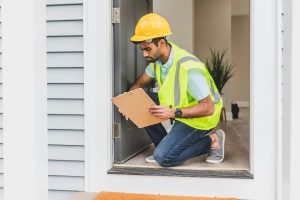The Importance of Hiring a Qualified Residential Building Inspector
When considering buying a home, understanding the property’s condition is essential. A qualified residential building inspector provides invaluable insights by examining key components such as the structure, plumbing, and electrical systems. Their role is to uncover potential issues that may impact the safety, functionality, or value of your home.
Why Building Inspections Matter
The building inspection process involves a thorough evaluation, where inspectors look for defects or repairs that may be necessary. This provides buyers with a clear picture of what they’re committing to, as well as potential costs for future maintenance or upgrades.
In real estate, this information is crucial. It can influence negotiations, affect the final sale price, or even impact the decision to proceed with a purchase. For homeowners, knowing about potential issues beforehand enables better planning and budgeting.
Benefits of Hiring an Inspector
Peace of mind is a major benefit. A qualified inspector helps ensure there are no nasty surprises after you’ve moved in. This allows you to make informed decisions and safeguard your investment in the long term.
Choosing the right inspector can significantly impact your buying experience, making it essential to understand how to choose wisely. This includes not only structural assessments but also specialised inspections, such as air conditioning assessments, which can reveal hidden issues that might require costly repairs in the future.
Remember, not all inspectors provide the same services. Some may specialise in commercial properties, while others focus exclusively on residential homes. Understanding these distinctions will help you find the best inspector for your needs.
Step 1: Research and Recommendations
Start by gathering recommendations from trusted sources. Friends, family, and real estate agents can often provide valuable insights based on their experiences, serving as a reliable starting point in your selection process.
In the digital age, online platforms like Google, Yelp, and Facebook are invaluable for thorough research. Reviews and ratings from previous clients offer a range of opinions about different inspectors.
When considering potential inspectors, keep these factors in mind:
- Reputation: Consistent positive feedback and comments about punctuality, thoroughness, and professionalism are key indicators.
- Reliability: How inspectors respond to negative feedback reflects their commitment to customer satisfaction.
- Experience: Inspectors with numerous reviews and high ratings generally indicate reliability and experience.
Reading reviews in detail helps gauge an inspector’s reputation and reliability. Look for patterns in feedback that highlight strengths or areas of improvement. By combining personal recommendations and online resources, you can shortlist reputable inspectors for further consideration.
If you need comprehensive inspections, including pest and building inspections, consider reaching out to specialised services that can cater to these specific needs.
Step 2: Check Insurance Coverage
Liability insurance is essential when selecting a residential building inspector, as it protects both you and the inspector during the evaluation process.
Why Liability Insurance Matters
Liability insurance serves as a safety net that covers potential mishaps during a building inspection. For instance, if an inspector inadvertently causes damage to the property or overlooks a significant issue, their insurance can cover the associated costs. Without this protection, you could face unexpected financial burdens.
What to Ask About Insurance Coverage
When assessing inspectors, ask these specific questions:
- Do you have liability insurance? Confirm the inspector is insured to protect both parties.
- Can you provide proof of insurance? A reputable inspector should have no issue providing proof of current coverage.
- What does your policy cover? Understand the scope of the policy, including types of damages or omissions covered.
By covering these points, you can assess whether the inspector is prepared to handle potential issues, ensuring your investment is secure.
Step 3: Understand Inspection Scope
Knowing the inspection scope is key to a thorough evaluation of a property. A clear inspection checklist can help reveal potential issues before they escalate. Here’s what to expect in a building inspection:
- Plumbing Inspection: Inspectors check visible pipes, fixtures, and water heaters, looking for leaks, corrosion, and proper water pressure.
- Electrical Systems Check: This includes wiring, outlets, switches, and circuit breakers, ensuring safety standards are met and identifying outdated or hazardous components.
- Heating and Cooling Evaluation: Heating, ventilation, and air conditioning systems are checked for age, condition, and performance.
- Roof Assessment: Inspectors look for signs of wear, such as missing shingles or leaks, that could lead to significant damage if untreated.
- Structural Integrity: Foundations, walls, ceilings, and floors are examined for movement, water damage, or other structural issues.
- Environmental Concerns: Some inspectors offer additional services, such as mould or radon testing, which can help uncover potential environmental risks.
Understanding the inspection scope in advance clarifies what will be covered, preventing surprises and ensuring your investment is well-protected.
Step 4: Attend the Inspection
Being present during the inspection offers valuable insights and the chance to communicate directly with the inspector, enhancing your understanding of the property.
Benefits of Attending the Inspection
- Real-Time Observations: See issues firsthand, which can be more impactful than reading about them later.
- Gaining Insights: Learn about the property, including maintenance tips, potential repairs, and system operations.
- Asking Questions: Engage directly with the inspector, asking questions and clarifying findings.
- Understanding Technical Terms: On-site explanations can help clarify any technical language in the report.
- Building Trust: Attending fosters a rapport with your inspector, building trust in their findings and recommendations.
Attending the inspection not only provides crucial insights but also empowers you with knowledge, aiding in informed decision-making.
Conclusion
Hiring the right building inspector is essential for protecting your investment. A comprehensive inspection reveals hidden defects and equips you with the knowledge to make confident decisions.
Follow these steps—research recommendations, verify qualifications, check insurance, understand the inspection scope, and attend the inspection. These actions will help you choose an inspector who meets your needs and expectations.
Frequently Asked Questions
A qualified inspector identifies potential property issues, providing homeowners peace of mind and helping to avoid costly repairs.
Start with recommendations from trusted sources and online research. Evaluating their reputation through feedback ensures you select a reliable professional.
Liability insurance protects both the inspector and homeowner if any errors or omissions occur during the inspection. Always confirm insurance coverage with potential inspectors.
Understand the areas covered, typically including plumbing, electrical systems, and roofing. Use an inspection checklist to clarify what’s included.
Yes, attending allows you to interact with the inspector, ask questions, and understand any issues firsthand.
Subscribe To Our Newsletter
Get updates and learn from the best
More To Explore

Common Issues Found by Private Building Inspectors in Adelaide
Investing in property is one of the most significant financial decisions you’ll ever make, and ensuring it’s a sound investment starts with a thorough inspection. Private building inspectors in Adelaide act as your trusted allies, uncovering hidden issues that could impact the safety, value, and longevity of your property. From structural defects and pest infestations

Why You Should Hire a Private Building Inspector Before Buying a property
Purchasing a property is one of the most significant investments you’ll ever make. Yet, beneath the surface of any potential dream home could lie hidden issues that threaten its value, safety, and liveability. This is where a private building inspector steps in—offering an in-depth, unbiased evaluation of the property to ensure you’re making a sound


